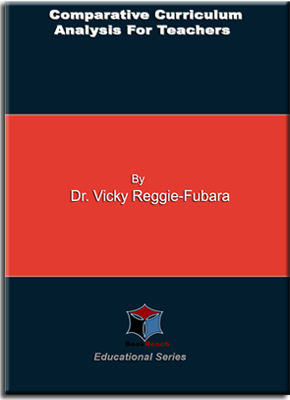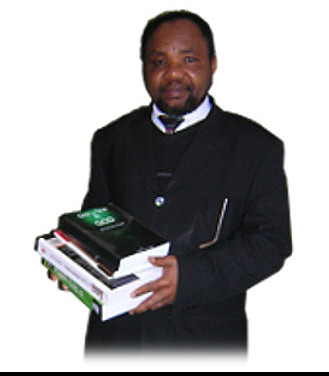Preface
This book is a result of a high degree of stimulation received during my lessons with my students on Comparative Curriculum Analysis at the University of Port Harcourt. When I took up this course we discovered that there was little or no material around in this area for us to start with. So I decided to put a few things together to acquaint the students with development of materials in this area. What follows, therefore, is a modest effort to put students, by way of direct experience, through various stages involved in the analysis of curriculum materials.
The concept of curriculum analysis, as we know, refers to the process of breaking up curriculum materials into their component parts to enable the analyst to know how the various components are contributing to the overall intention of a given course. Many models used in this process are put forward for the purpose of acquainting the readers with other methodologies. This would also help them acquire the skills of Comparative Curriculum Analysis which would enable them in turn to possess a better footing in this field.
Curriculum analysis is useful both for curriculum design and decision-making in education. It is also useful for teaching, as it acquaints them with the structure of the materials they teach. It is hoped that this contribution will help students as well as teachers in Comparative Curriculum Analysis skills.
Introduction
This book is a modest effort by the author to provide a practical guide of Comparative Curriculum Analysis in universities. Such a course, approached theoretically, appears very abstract and very difficult to grasp. As such the author thinks, and quite seriously too, that the only way to effectively inculcate, as well as develop skills in the analysis and evaluation of curriculum materials would be the following:
- a) Choose curriculum material to be analysed from any nation;
- b) Identify criteria and method of analysing the material;
- c) Acquaint students with the relevant aims of the curriculum material so that they can relate the various components to stated as well as attained goals; and
Familiarise them with various methods of curriculum analysis and evaluation techniques through direct experience and the study of curriculum analysis models that are universal.
The most important item as listed above is (a) as it stresses the use of direct experience. It is for the sake of this and the experience it provides that it has been decided in this book to take students, who are interested in acquiring such skills, through curriculum analysis exercise personally conducted by the author. There is no special reason for the chosen course except for the fact that it was a major innovation in England at the time that this study was conducted. Further, the course chosen for analysis has many exciting components. It is hoped that the students will find it useful in analysing other curriculum materials.
For the practical experience the author has chosen the Schools Council Projects, History (13-16), to exemplify curriculum analysis methods. It is necessary to note that other course materials can also be analysed exactly in the same manner as this one. The procedure can be adapted or adopted fully.
Let it be stated that in the process of this work it is not the author's intention to pass judgements of her own. If judgement is passed, however, it will be in the process of processing the judgement of both teachers and pupils of the Cardinal Newman School where this study was conducted. On the whole, what eventually comes through in the process of analysis is the cumulative findings of the opinion polls carried out in the curriculum analysis exercise.
The book starts by first examining some background information about the selected programme; then, followed by the evolution of thought in that discipline. This is to give the analyst a firm grip of the subject matter. To further consolidate this, we shall also examine some theoretical perspective on the nature of the subject matter chosen. The next step would be followed by various stages of analysis of programme materials followed by a detailed procedure for analysis of course materials.
Table Of CONTENTS
- Acknowledgements
- Preface 1
- Introduction 2
- PART 1 THEORY 4
-
Background and Definition of the Scope
Of Comparative Curriculum Analysis 5
- Chapter 1
- Some Theoretical Perspective in the Nature of the
- Curriculum 10
- >
- Chapter 2
- Some Theoretical Perspective in the Nature of a
Selected Subject Matter: History 50
- Chapter 3
- Schemes for Analysis of Curriculum Materials 58
- PART 2 PRACTICUM 101
- Chapter 4
- Procedure for Curriculum Analysis 102
- Chapter 5
- Curriculum Analysis Tools: A practical Guide 138.
- Chapter 6
- Conclusion 149
- Appendices 150
- References 198
- Index 200

